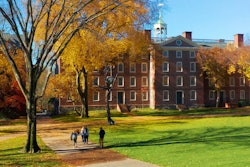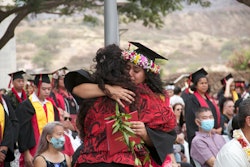Many Asian Americans favor presidential candidate Barack Obama, but a significant portion remain largely undecided on their pick for president less than one month before Election Day, according to a new national survey released Tuesday. Asian Americans have the potential to play a major role in election results, according to the study’s researchers from Rutgers, State University of New Jersey; the University of California, Berkeley; the University of California, Riverside and the University of Southern California.
The 2008 National Asian American Survey shows 41 percent of Asian Americans favor Obama and 24 percent support John McCain. But fully a third of Asian Americans remain undecided, says Dr. Karthick Ramakrishnan, a University of California, Riverside, associate professor of political science who was of the study’s researchers. In the general population only 8 percent of voters are still undecided, according to recent polling.
Ramakrishnan says, “with such a high proportion of undecided voters, Asian Americans are a critical source of potential votes for either candidate in the final weeks of the campaign.” Asian Americans make up 5 percent of the population nationally, but their numbers are growing at explosive rates in battleground states, says Dr. Taeku Lee, associate professor of political science at the University of California, Berkeley.
The multilingual multi-ethnic study interviewed more than 4,000 Asian Americans likely to vote in the election, and researchers say it is the most comprehensive study yet reflecting political views of Asian Americans.
Candidate preference varies by ethnic group, according to the researchers. A majority of Vietnamese Americans support McCain, while Japanese, Chinese and Indian Americans tended to support Obama.
As a group, Asian Americans lean toward the Democratic Party, but many are nonpartisan. About 32 percent identify as Democrats, 14 percent as Republican, 19 percent as Independents, and 35 percent as nonpartisan. Why do so many identify as unaffiliated? Since they are a largely immigrant population, their socialization process is different from native-born citizens, and many are still making up their minds about the political parties, says Dr. Janelle Wong, associate professor of political science at the University of Southern California.
On an institutional level, political parties do not reach out to Asian Americans at the same rate as they target other groups, according to Lee. But when political parities have reached out to Asian Americans, they get results. Undecided voters were the group least likely to have been targeted by a party or candidate, according to Lee.
“The Asian American vote is very much up for grabs: Nonpartisans who see either the Democratic or Republican party as closer to them on issues that matter to them are much likelier to vote for that party’s candidate,” says Lee. As for the issues they care most about, 80 percent of Asian American voters list the economy at the top, followed by the war in Iraq.
The study is ongoing, and researchers say they expect to release further results after the election. Ramakrishnan says he hopes this study spurs more media coverage of Asian Americans.
“Asian Americans remain invisible because there’s so little coverage of them … I think this sets an important benchmark for future surveys … whether its every year or every election year,” he says.
Email the editor: [email protected]
Click here to post and read comments
© Copyright 2005 by DiverseEducation.com





















